Hairdressers fear staff crisis after apprentice shortage
- Published

Hairdressers fear a future staffing crisis as the pandemic has caused the already decreasing number of apprentices to fall further.
The number of people starting hairdressing apprenticeships in England had halved between 2016 and 2020.
The National Hair and Beauty Federation (NHBF) expects another drop of 30 to 50% in the coming year.
The skills minister said any employer who took on a new apprentice before 30 September 2021 would get £3,000.
Richard Lambert, the NHBF's chief executive, believes the lack of apprentices now could have a lasting impact.
"We've seen from other industries which have gone through recessions, construction for example, that if you have a period of a gap with apprentices coming in, that gap can then be seen through the whole of the career arc over the next forty years," he added.
His organisation estimates that the number of people starting hairdressing and barbering apprenticeships has dropped from 15,450 in 2016/17 to around 7,000 in 2019/20.
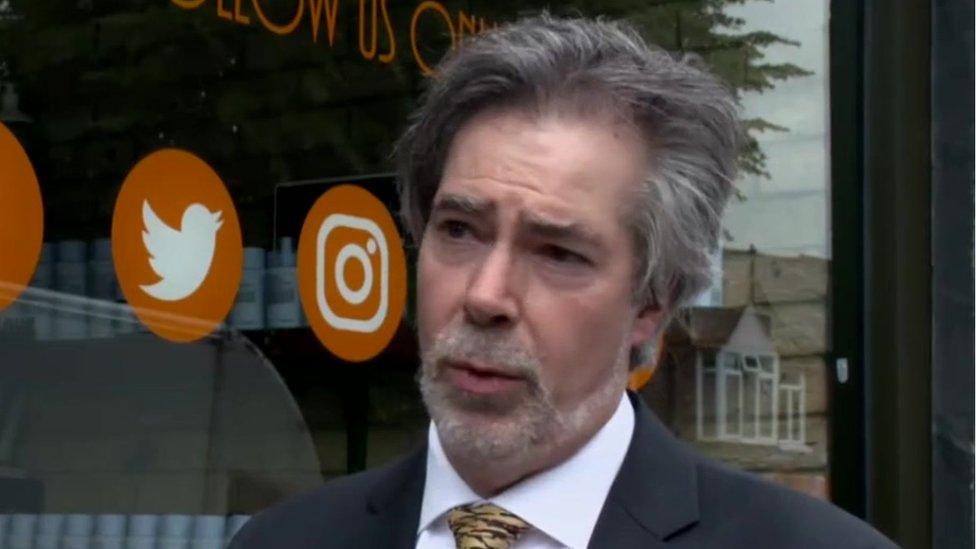
Richard Lambert said the lack of apprentices now could have a lasting impact
Mr Lambert said he was concerned that "hairdressing is not seen any more as a suitable career".
He said: "Partly it's a concern that schools push the academic route at young people so they tend to be thinking about college and university rather than practical or vocational.
"But then Covid has just exacerbated everything on top of that."
Mr Lambert said opening with reduced capacity following months of lockdowns meant many salons could not afford to recruit people who would not immediately generate income.

'I want to work my way up'

Dulcie Wilson, 17, started her two- to three-year apprenticeship in September and hopes it will help forge a career.
She said: "I've always been passionate about hair. It just came up as a really good opportunity and I've been enjoying it ever since. I feel I'm part of the real world and helping real people.
"I watch a lot of people and it really does help you learn, watching the stylists. So you're part of the team.
"Hopefully, I'll be a stylist here and work my way up, and just become better and better."
Dulcie said her favourite part was talking to clients and seeing the results of transformations.
"Cleaning the toilet is probably the least fun job, but it's still fun to be part of the team," she added.

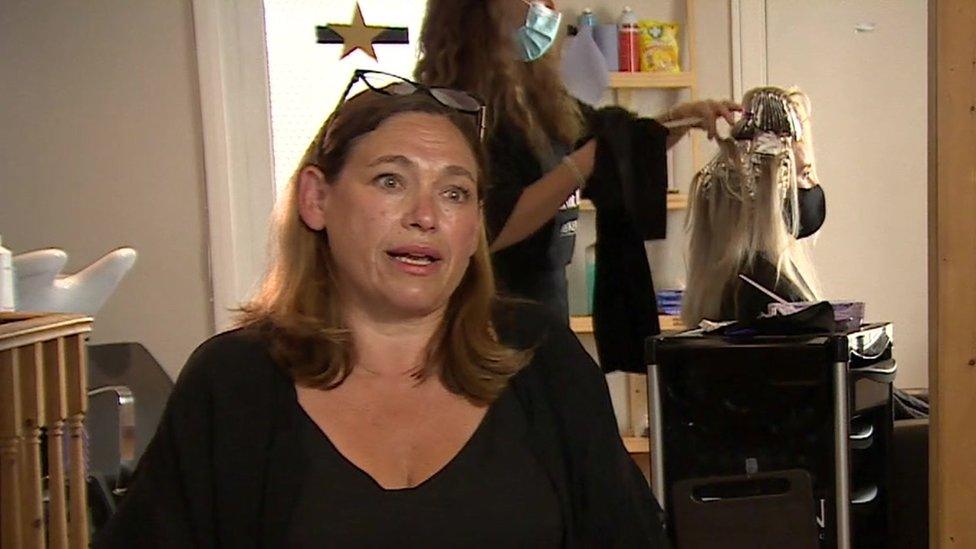
Carolyn Sweeney says she finds it hard to recruit the right people
There are other routes to a hairdressing qualification, such as completing a college course.
But Carolyn Sweeney, who owns Creations Hair & Beauty in Chichester, feels many who take that path do not arrive ready to start the job.
"What you learn [as an apprentice], from just being around other people, you don't get that at college. The people skills, all the experience being in the salon."
She did not take on any apprentices in 2020 due to the time her business was closed. This year, she will be taking on three, instead of the usual four or five.
One reason is the financial commitment required, at an uncertain time. Another is difficulty recruiting.
"We are finding it really hard to find the right people. It's a job that's all about passion and creativity. You've got to have people who believe in what they're doing because it's really hard work."
She is also concerned about the rise in self-employed practitioners who, according to the NHBF, very rarely employ apprentices.
"Who is investing in the future of our industry? That's a real worry. I just don't know where the hairdressers of the future are going to come from. And good quality, we want good quality people".

The decline of apprenticeships in England
In 2016/17, 15,450 people started hairdressing and barbering apprenticeships in England.
By 2017/2018, the figure was 11,500, a drop of just over 26% due to changes in apprenticeship standards and funding.
In 2018/2019 there was another 13% drop with 10,000 people registering for the placements.
And the latest figures for 2019/20 show around 7,000 people started the on-the-job training - a drop of 30% compared to the previous year.
Source: National Hair and Beauty Federation.

Gillian Keegan, Minister for Apprenticeships and Skills, said as well as the £3,000 incentive being offered, the government had introduced flexibilities to ensure apprenticeships could continue during the pandemic.
She said: "We are also creating opportunities for young people through our £2 billion Kickstart Scheme, expanding our traineeships and sector-based Work Academy Programme and supporting employers to offer more apprenticeships."
Mr Lambert from the NHBF believes there is no quick fix or simple solution - but there are some grounds for optimism.
"People are now valuing their hairdressers much more. Having tried to do it at home themselves they've realised it's a much more skilled job than they thought it was," he said.
"It's not just about cutting hair, but the opportunity to start your own business as well."
Related topics
- Published3 July 2020
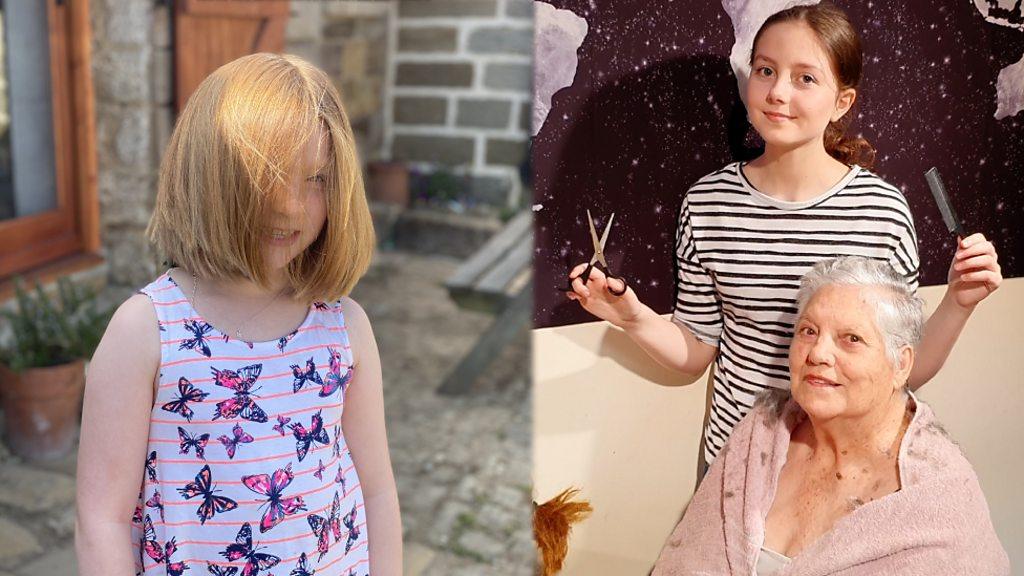
- Published24 February 2021
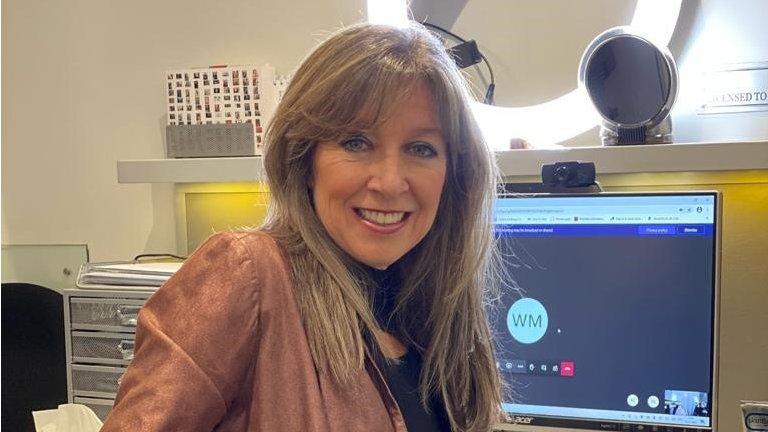
- Published4 February 2021
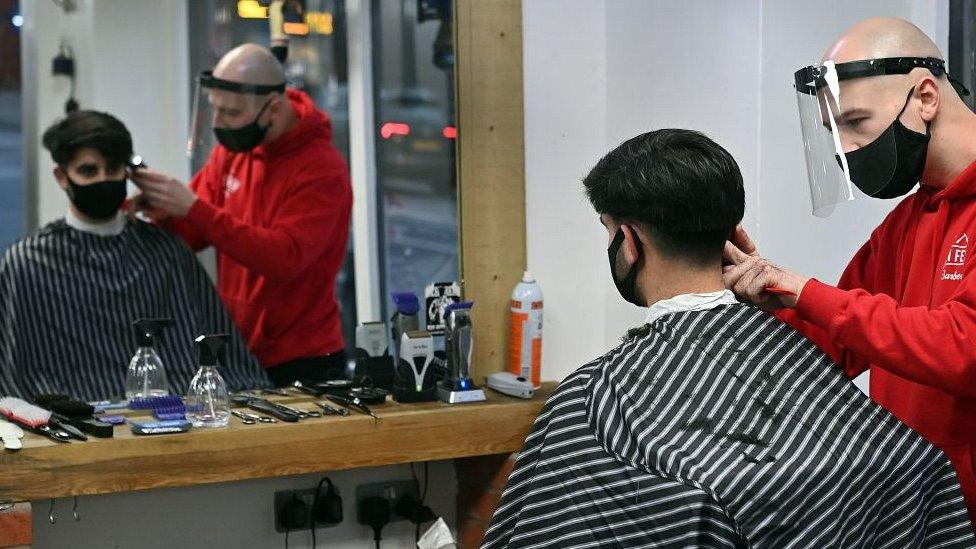
- Published3 May 2020
